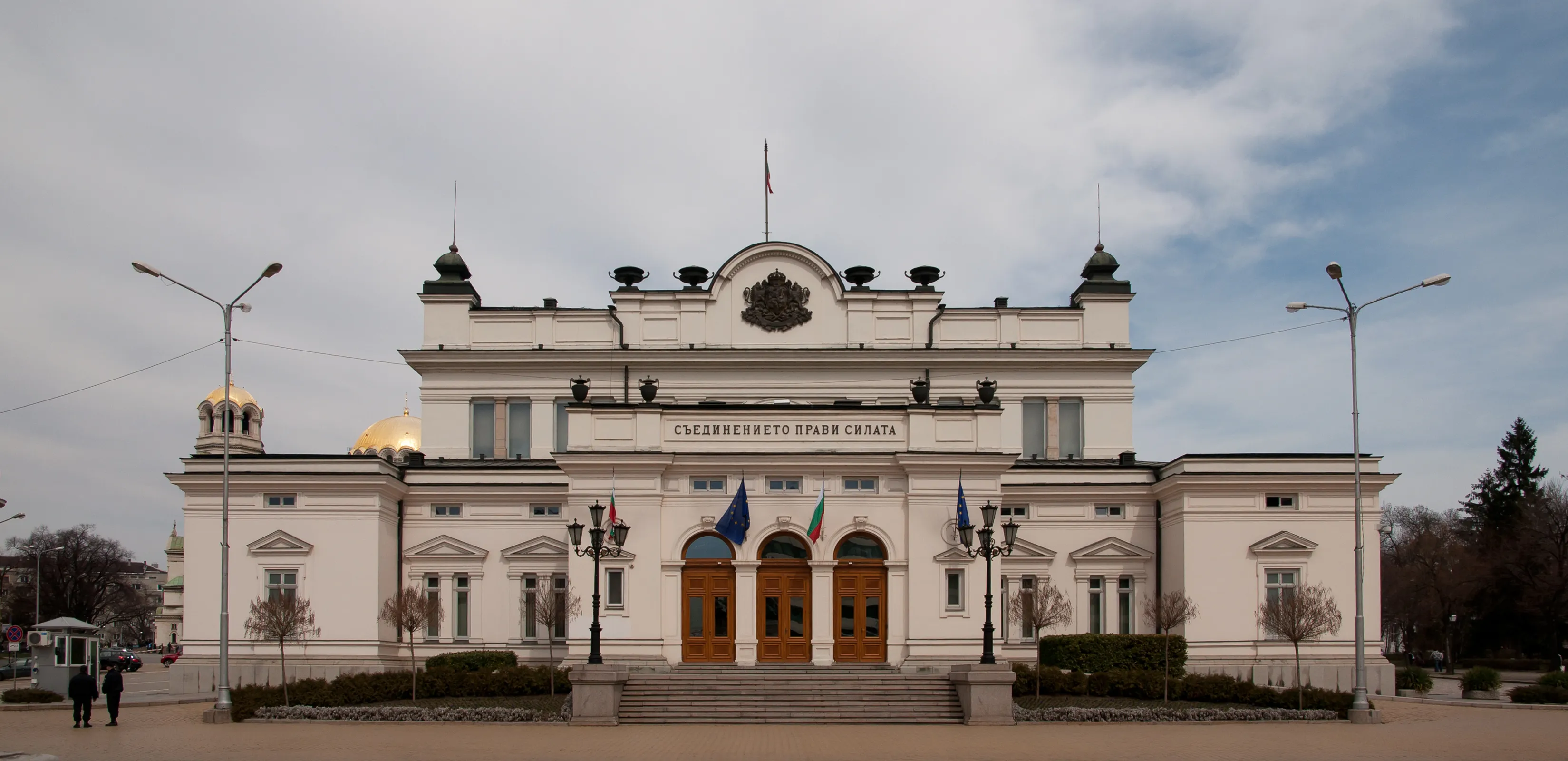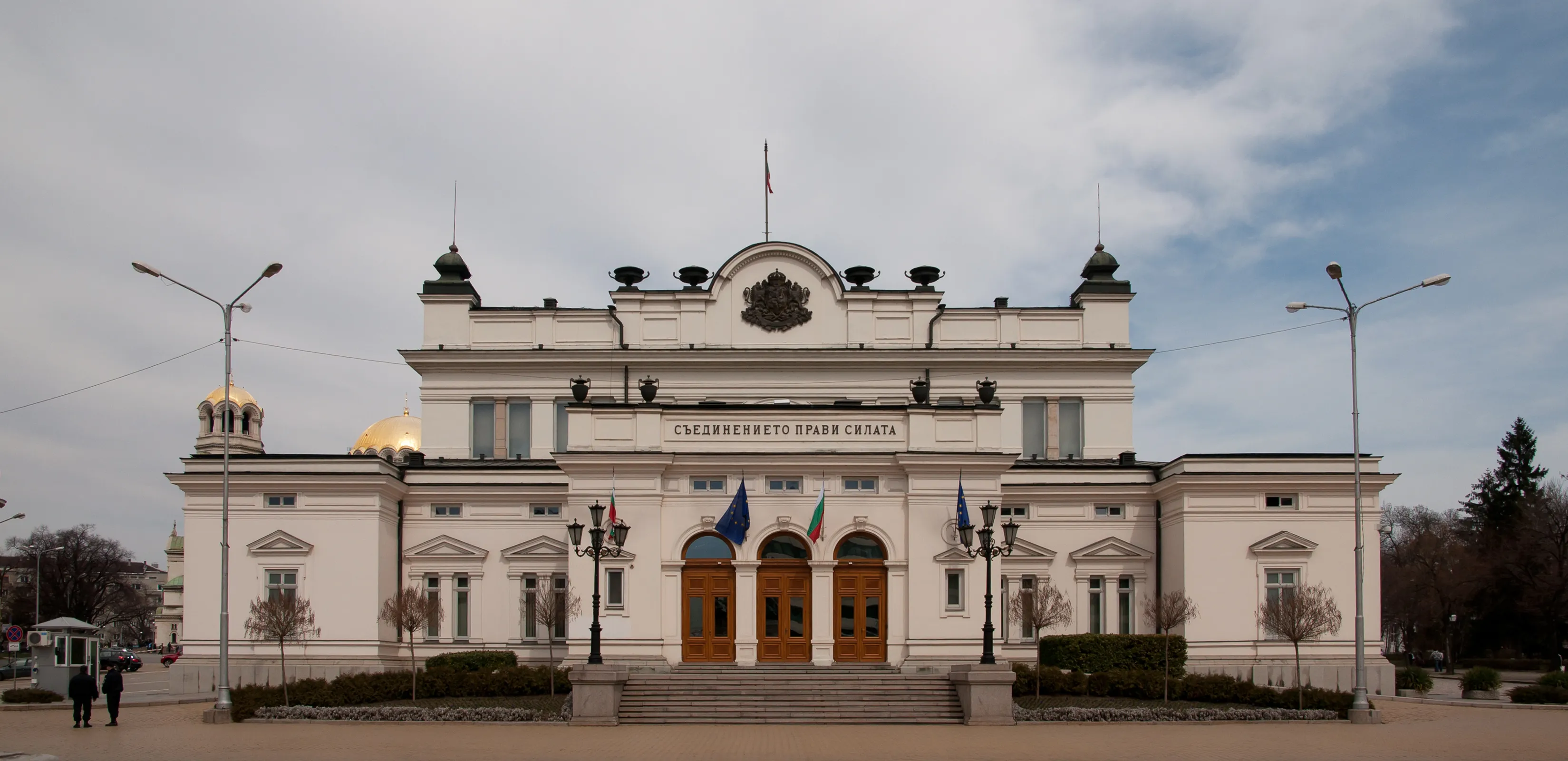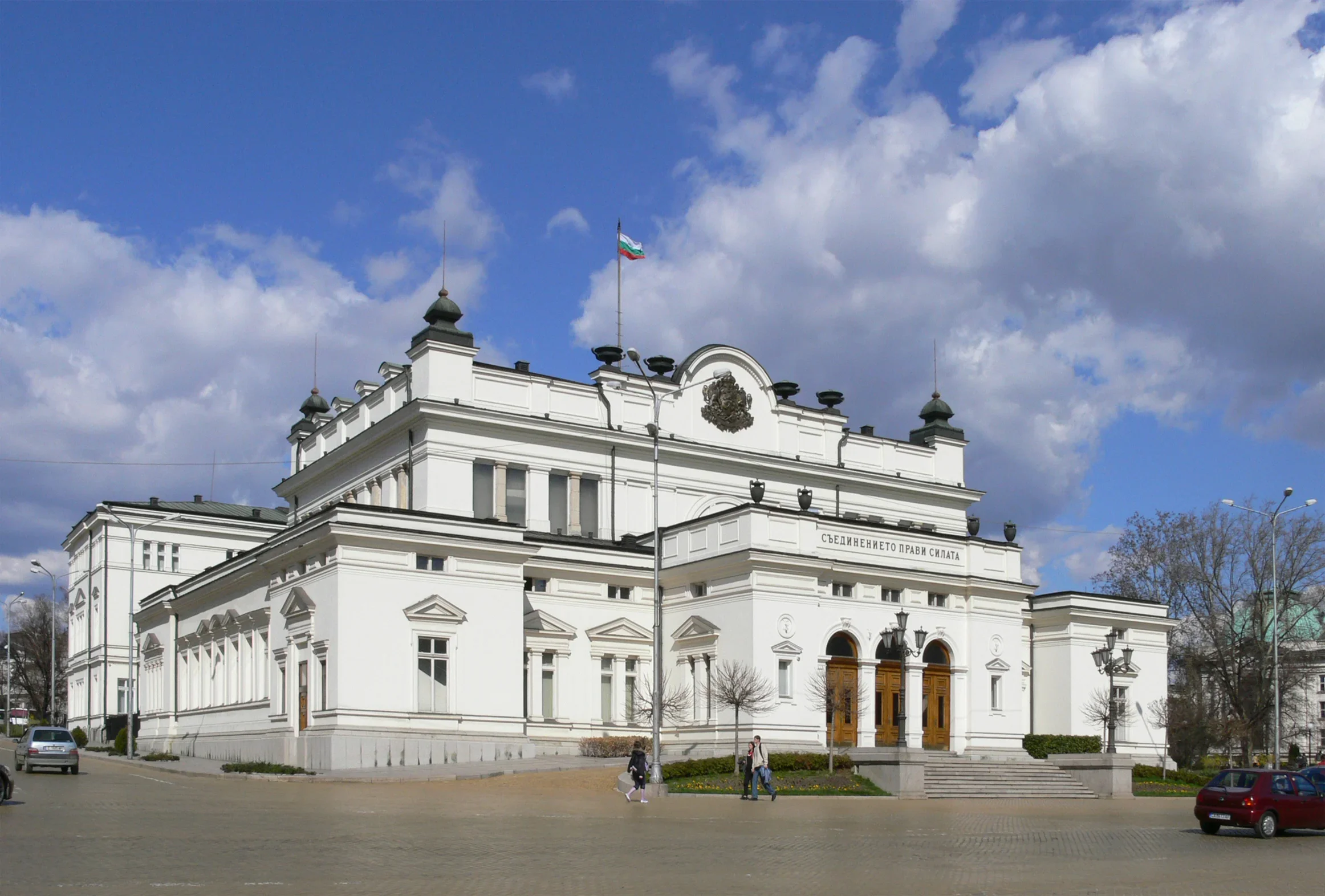Following a tense session filled with debates and in-depth analysis, the parliamentary committee on constitutional and legal affairs adopted at first reading two key draft laws aiming for significant changes to the Code of Criminal Procedure (CCP). The legislative initiatives, which will now move to the plenary hall, concern both the implementation of international commitments and sensitive issues related to the jurisdiction of military courts.
The first draft law, introduced by the Council of Ministers, received the support of 13 "for" votes and marks an important step towards finalizing the last reforms necessary to receive the third payment under the Recovery and Resilience Plan (RRP). The Ministry of Justice presented the draft law as a tool to address a number of issues in criminal proceedings that have so far created obstacles and ambiguities.
Draft Law of the Council of Ministers
The Minister of Justice, Georgi Georgiev, addressing the members of the committee, emphasized that the changes are of essential importance.
"This is the last reform so that we can fulfill all commitments for the third payment under the Recovery and Resilience Plan (RRP). A reform that addresses a number of issues in criminal proceedings," he stated.Minister Georgiev explained that the draft law aims to expand the circle of persons who have the right to appeal in court a prosecutor's decree to terminate or suspend criminal proceedings (CP). In addition, it provides for specific hypotheses under which the Chief Prosecutor can exercise his powers to set aside a decree to terminate CP after the deadlines for judicial review. These measures are aimed at strengthening judicial control and ensuring greater transparency in the work of the prosecutor's office.
Limitation of the Jurisdiction of Military Courts
The second draft law, introduced by MP Dimitar Gardev and a group of members of parliament, was also approved at first reading with 12 "for" votes. It stirred up controversy with its proposal to abolish the jurisdiction of military courts for crimes committed by employees of the State Agency "Intelligence" (SAI).
The proposal sparked a lively debate. Nikoleta Kuzmanova from the parliamentary group of "There Is Such a People" assured that the changes do not exempt SAI employees from criminal liability, but simply transfer their cases to general courts.
"This does not exempt these persons from criminal liability; it will simply be realized in the general courts," she emphasized.Kuzmanova added that although according to the current Bulgarian law, a crime committed by an SAI employee is under the jurisdiction of a military court, Bulgaria has been condemned by the European Court of Human Rights (ECHR) and owes compensation for such a punishment imposed.
Nadezhda Yordanova from the PG of "We Continue the Change – Democratic Bulgaria" supported the thesis, pointing out that this is not an isolated case.
"Not only for Bulgaria, such is the practice of the ECHR – military courts must have a very narrow competence," she explained, emphasizing the European trend to limit the jurisdiction of military courts.Minister Georgiev confirmed that his department has provided an official opinion on this draft law, although without revealing details from it.
You may also like
 The Anti-Corruption Commission is Shut Down and its Functions Transferred: GDBOP Takes Over Corruption Investigations
The Anti-Corruption Commission is Shut Down and its Functions Transferred: GDBOP Takes Over Corruption Investigations Parliament Discusses Amendments to the Electoral Code: Restriction of Polling Stations Abroad and Other Bills
Parliament Discusses Amendments to the Electoral Code: Restriction of Polling Stations Abroad and Other Bills Amendments to the Cybersecurity Act Adopted: New Requirements and Restrictions for Businesses
Amendments to the Cybersecurity Act Adopted: New Requirements and Restrictions for Businesses The Municipal Council in Primorsko Discusses Changes in Administration, Projects and Decisions.
The Municipal Council in Primorsko Discusses Changes in Administration, Projects and Decisions.
The approval of the two draft laws at first reading opens the way for a second reading in the plenary hall, where they will be subjected to a final vote. It is expected that the debates on them will continue to be intense, as they affect deep and essential issues of the legal system and the country's international relations.
- Code of Criminal Procedure (CCP)
- Draft laws
- Parliamentary committee
- Military courts
- Recovery and Resilience Plan (RRP)




Коментари (95)
fan_45
10.09.2025, 16:49парламента
fan_452023
10.09.2025, 16:52Слава Бога, най-сетне нещо се прави в тази стр
PESHOFROMSOFIA
10.09.2025, 16:52Аз така мисля, че е голяма победа за България
vankataBG1994
10.09.2025, 16:52Благодарение на парламентата!! 🤦♂️
нещо_здраво
10.09.2025, 16:52аби мола те, най-накрая нещо здраво в нпк!! 🤙
F91E8
10.09.2025, 16:53Aз така мисля, чи се прави добре
b. димитров
10.09.2025, 16:54Зато че са ги понели
HOLERA
10.09.2025, 16:52Благодарение на ЕС
PETKAN
10.09.2025, 16:55ах да, сега ще бъде по-добре в българ 😂
A7BA
10.09.2025, 16:57Абе мола те
jivko
10.09.2025, 17:11такива си тези ннови закони
komentar_bg2005
10.09.2025, 17:13Ах, ннай-святите нови закони
TONY_STARK
10.09.2025, 17:14ами не е въобще защо се правят? дали ще помогнат
anoniemen
10.09.2025, 17:16Трябва да се радваме, че най-накрая
МАЙСТОРА
10.09.2025, 17:32Заслужено
ninja
10.09.2025, 17:36възхитенна европейска демокрация
NQKOI
10.09.2025, 17:47благо за българия
theRealIvan
10.09.2025, 17:51ами най-накрая
t. Костов
10.09.2025, 17:58Благо за България
martin_24
10.09.2025, 17:59зле би било, ако не се ползват от опита на е
THEREALIVAN
10.09.2025, 18:00ай да, нещо по-открито
ADMINA
10.09.2025, 18:17комисията
се
10.09.2025, 18:18да се радваме
bat_jordan
10.09.2025, 18:18Трябва да се радваме, че накрая комис
pich_007
10.09.2025, 18:19Въпреки всичко
A912
10.09.2025, 18:20Накрая нещо здраво в тази страна 👏
realist1990
10.09.2025, 18:20Ах, най-накрая нещо добро от този парламент
p. иванов
10.09.2025, 18:22Затова се наричаше Европейската комисия, за да
ADMINA
10.09.2025, 18:22Ва-хо
tony_stark
10.09.2025, 18:22Aз така мисля, че сега стана нещо реално в Бъ
PeshoFromSofia
10.09.2025, 18:24Да се радваме на малките победи в борбата за!
4erveno_flag
10.09.2025, 20:02Аз така мисля, че тези изменения са нужни
NIKI_BG
10.09.2025, 20:47Такава е Българиа
CDE5
10.09.2025, 20:48Хайде да се връщат към нормалност
PETROV
10.09.2025, 20:50Aх,най-накраанещодобросеслу4ва
ГРАЖДАНИН_Х
10.09.2025, 20:52Ах, ннай-после
avtoritet1980
10.09.2025, 20:51Благо България
M. Тодоров
10.09.2025, 20:54Абемоляте,най-накраянещодоброзанашастр
Луд_Петко2002
10.09.2025, 21:22Браво на парламента
REALIST
10.09.2025, 21:51такива промени се изискват
guest1231999
10.09.2025, 21:52Възхитите
bat_jordan
10.09.2025, 21:57комисията
vasil_p
10.09.2025, 22:18Аз така мисля, че това е позитивно движение
4ERVENO_FLAG
10.09.2025, 22:19Вие, вasil_p? Аз мисля, че това е началото
asdasd
10.09.2025, 22:21Единствено сега започна да се прави нещо в Бъл
MAIMUNATA
10.09.2025, 22:23Слава Българиа
petrov2011
10.09.2025, 22:19слава българия
08AE0
10.09.2025, 22:30Некасеправиправосъдието
fanata
10.09.2025, 22:32Законът не е за нас, а за руснаците
peshaka
10.09.2025, 22:39Аз така мисла, че това е добра новина! 🙄
zlata_koti1974
10.09.2025, 22:50Аз така мисла: най-после НПК се движи
ANONIEMEN
10.09.2025, 22:52ха ха
[email protected]
10.09.2025, 22:54хубavo
PICH_007
10.09.2025, 23:10Ха, най-накрая нещо здраво 💥
DOKTORA
10.09.2025, 23:39законът е пуснат
LUDATA
10.09.2025, 23:39Дай бога на тези лидери
krisko_bg1976
10.09.2025, 23:40хайде, да се чува, че нпк ще стане по-
martin_242002
10.09.2025, 23:43Като цяло не лошо
Admina1985
10.09.2025, 23:43Вала се за нас
IVANKA
10.09.2025, 23:47Вълкът се храна, а ние се радвам
petrov
10.09.2025, 23:48Абе моля те, най-после нещо добро от НПК 🔥
AS
10.09.2025, 23:52азнесерадвам,4еправосъдиетовб
pesho98
10.09.2025, 23:49трябва да се радваме на тези промени
REALIST
10.09.2025, 23:58Великата България се движи напред
xd
11.09.2025, 00:01БравонаЕС
заслужено
11.09.2025, 00:48Заслужено
PeshoFromSofia1979
11.09.2025, 00:51Ах,най-накраянещодобросеслучвавтаз
стъпка
11.09.2025, 00:52Следната стъпка е реформирането на правосъди
anoniemen2012
11.09.2025, 01:48Новите закони са добре
Гошо
11.09.2025, 02:42парламента
323
11.09.2025, 02:49Я не разбирам какво се нарича правосъдие ког
ЛУД_ПЕТКО
11.09.2025, 02:51Ако беше за мен, правосъдието би било за х
най-накрая_ние
11.09.2025, 03:22ние най-накрая
bg_tigar
11.09.2025, 03:24Като накрая? Това е краят на корупцията в нашата
ludata
11.09.2025, 03:32Благо за България
ZLATA_KOTI
11.09.2025, 03:35Некаседвижимнапред
GUEST123
11.09.2025, 05:20Абе моля те
благо_за
11.09.2025, 05:21Благо за България
DIMITAR
11.09.2025, 06:02Браво на парламента
i. костов
11.09.2025, 07:09Еureka
bat_vasko
11.09.2025, 07:40Следнната стъпка към Европейския модел
97A
11.09.2025, 07:42Аз така мисла, че това е голям корък напред!
ЛУД_ПЕТКО
11.09.2025, 08:18виликден за правосъдието 😏
BG_Tigar2008
11.09.2025, 08:22Сърце ми се радва на тези новини
Barona
11.09.2025, 08:24Хей, не се радвай на това, а българо-!!
Г. Тодоров
11.09.2025, 08:37парламента
[email protected]
11.09.2025, 08:41Абе мола те, най-после нещо здраво да се прави
vasil_p2008
11.09.2025, 08:40фinally
МАЙСТОРА
11.09.2025, 08:59Ще бъде по-добре 😏
martin_24
11.09.2025, 10:13Комисиq
майстора
11.09.2025, 11:03ах, най-после
AS
11.09.2025, 11:39хубаво 💩
славабългария
11.09.2025, 11:39СлаваБългария
as1997
11.09.2025, 15:08Възкресqване на правосъдието
Луд_Петко
11.09.2025, 15:30Благодарение на ЕС сега се правqт реформи в нашето